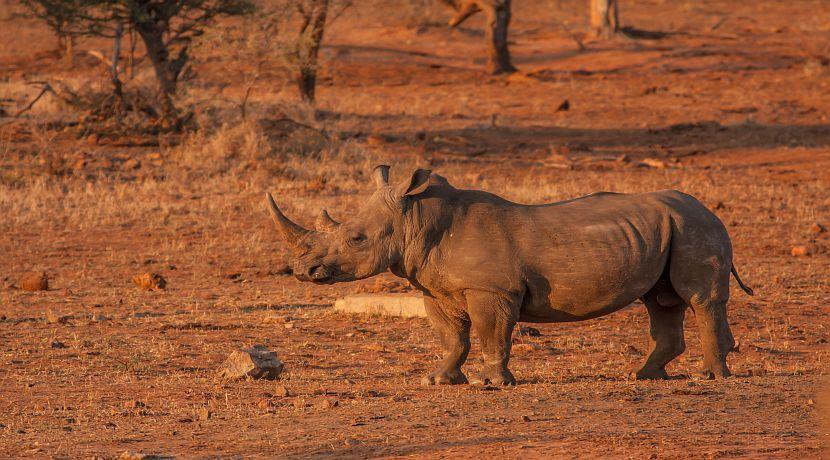Rhino's are one of the most critically endangered animals on Earth and we need to learn more about them so we can aid their conservation. Below are our top 8 facts about these beautiful animals:
1. Their family tree goes back a lot further than yours

Rhinos are over 50 million years old. Their ancestors had a tendency to be slightly woollier than their modern day cousins, but they haven't changed much at all during this time!
2. They are very hospitable hosts

Rhinos have come to a mutually beneficial agreement with the Oxpecker bird. The birds eat ticks and other insects they find on the Rhino, and as well as this cleaning service if the birds sense danger they will cause a commotion, alerting the Rhino to the danger!
3. A group of Rhinos has an amazing name

Rather than just referring to them as a herd, a much more appropriate name for a group of Rhinos is a crash!
4. They have at least one similarity to humans

Rhino horn is made of Keratin which is the same protein human hair and fingernails are made of. The longest horn ever known was found on a Black Rhino and was 4 foot 9 inches long!
5. You might get confused by their individual names

Despite their names, White and Black Rhinos are actually grey. The White name came from English settlers in South Africa misinterpreting the Afrikaans word "weit" (which means wide and was referring to its mouth) for White and the name stuck. The name for the Black Rhino probably came from the dark mud which is normally covering their grey skin!
6. Their number are depleting rapidly

At the turn of the 20th century there was an estimated 500,000 Rhinos in the world. Now it's estimated that there are only 29,000 left in the wild. Things need to change quickly.
7. You wouldn't want to argue with one

Some of the biggest can grow to up to 13 feet long, so if you ever meet one then it's probably best not to wind him up.
8. Rhinos would make Usain Bolt look silly in a race

Rhinos can run up to 40 mph, meaning if you're ever unfortunate enough to be chased by one you should jump up a tree instead of running away!















